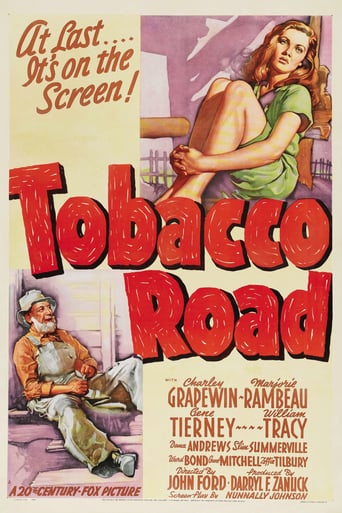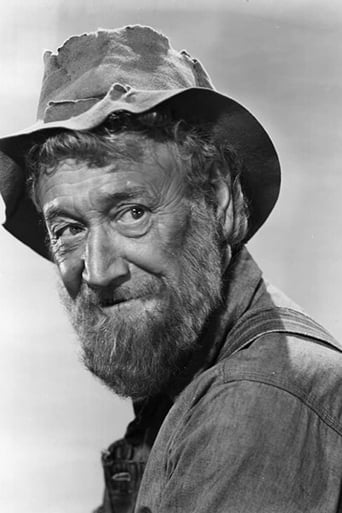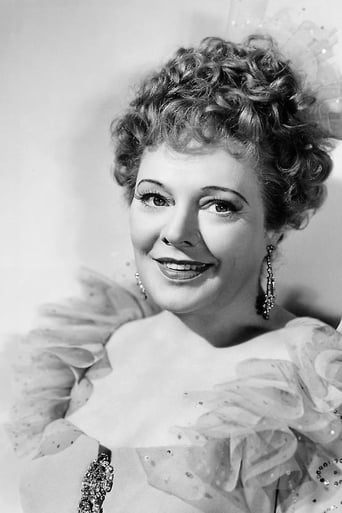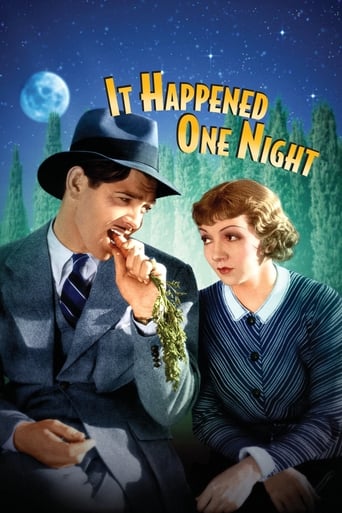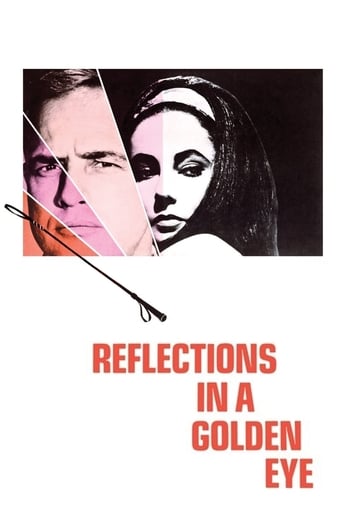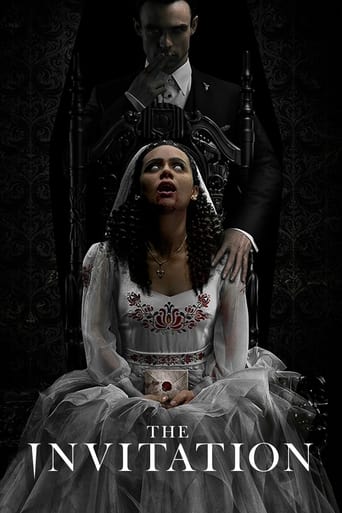Tobacco Road (1941)
Shiftless Jeeter Lester and his family of sharecroppers live in rural Georgia where their ancestors were once wealthy planters. Their slapstick existence is threatened by a bank's plans to take over the land for more profitable farming.
Watch Trailer
Cast


Similar titles
Reviews
The movie's essentially, a one-man showcase: Charlie Grapewin as the amiable n'er-do-well Jeeter Lester. He's a hoot and a half in his ragged overalls and bewhiskered face. Too bad the old coot just can't seem to get anything done, despite his uncomplaining, loyal wife (Patterson). Rarely did old Hollywood uglify settings as thoroughly as here. Lesters' shack looks like a wood pile, while others along the Road share that skid-row appearance. Trouble is that when you think about it, there's nothing funny about these miserable background conditions. Fortunately for the movie, Jeeter's comical antics distract from that troubling aspect. For example, I love the way the loose porch board keeps getting even with Jeeter's uncaring neglect in fixing it.Yup, the Depression Era makes things especially tough for these Southern farmers, and the question the Lesters confront is whether they can get a loan before getting herded into the poor farm. Note too, how the sleek Captain Tim (Andrews) appears to represent a landlord class, while Jeeter is among his tenant farmers dependent on the upper class for support. At this point in the movie, however, all have fallen on hard times, though the Captain still looks spiffy and well-upholstered, unlike his tenants. Nonetheless, the results are played for laughs, though I suspect many folks find the rural Southern caricatures more offensive than funny. For example, did they have to make young Dude Lester so dislikable-- that slug an angry Loy (Bond) puts on him was long overdue. Also, remind me not to loan my car to the Destruction Derby kid anytime, ever. Anyway, the movie is a sing-along for frog throats like me what with all those great old time gospel songs, even if choirmaster Sister Bessie (Rambeau) is caricatured. But please, get me a ticket to that old Road where I can maybe meet up with the luscious Ellie May (Tierney). I guess my biggest gripe is that Tierney doesn't get more screentime-- maybe all of it. On the other hand, I've definitely reached a new appreciation of the lowly turnip, of all things.All in all, I suspect the TCF production does not wear well for many. Still and all, Grapewin delivers a rollicking performance, so give the 84-minutes a try if you haven't already.
After a bank purchases the land, a family of hillbillies faces eviction if it can't come up with the rent. Based on a Caldwell novel that in turn became a stage play, this is very broad comedy that rarely rises above the level of The Three Stooges. Grapewin plays a lazy farmer who has so many children that he and his wife can't keep track of them. Tracy is horribly over-the-top as one of the grown children living at home. Tierney is third billed as Tracy's useless sister but barely has a line of dialog. Rambeau does OK as a neighbor. Andrews plays the only character who has some dignity. Every once in a while Ford came up with a real clunker, and this is one of them.
Dirt poor, elderly Georgia farmer Jeeter Lester (Charley Grapewin) schemes to get some money so that he and his wife Ada (Elizabeth Patterson) can remain at their dilapidated frame house on Tobacco Road, in this Great Depression era story, part comedy, part drama.As country hicks, most of the characters are rather too stereotyped to be realistic. The film's script is very talky, not surprising since the story originated as a stage play. The film's plot varies wildly from slapstick comedy to morose drama. And therein lies the main problem.Rural poverty in the South during the 1930s was no laughing matter. It was an intensely painful and prolonged episode of human misery. I can understand how viewers in those days needed some comic relief, but not in a story about poverty. The hyper-antics of young Dude, the film's comic relief, are extremely annoying. Those scenes dilute the seriousness of the film's underlying theme. And the subplot wherein Dude and Sister Bessie go off together seems like plot filler.Charley Grapewin gives a fine performance in the lead role. But Marjorie Rambeau as Sister Bessie, and William Tracy as Dude overact. Part of this overacting could have been the result of poor film direction.The film's background music runs the gamut from frivolous and nondescript in the comedic scenes to old-time gospel songs like "Shall We Gather At The River" during more serious moments.Given the era in which the film was made, "Tobacco Road" is okay, if you give it some slack. But the story would have been better without the slapstick comedy. In any event, it's a good movie to watch when you're depressed and think things can't get much worse.
The saga of rural southerners trying to stay on the land continues unabated since industrialization. Tobacco Road is a wonderful illustration of this struggle, and has many subplots that only a mature viewer would appreciate. Jeeter Lester was a complicated person - he was willing to steal from his own family, but we admire his steely determination to save the farm. Idleness had acclimated him to leisure, and laziness now marked his days. And desperation had acclimated him to dishonesty as a way to get along. The Lesters were brutal, and they were brutalized. They were sinners and saints. If it weren't for Charley Grapewin's upbeat performance, the movie would have taken on the aura of a dark comedy at best, if not an outright tragedy. Which is exactly what the story was - a tragedy wrapped in the cloak of a comedy. It has often been said that the line between tragedy and comedy is the finest thread. I think Ford does a good job of keeping the cloak of comedy on, with occasional glimpses of the "inside" story. Then ending is perfect, for it leaves the laughing child viewer with an assumed happy ending, thinking that it all worked out and they lived happily ever after. But the mature viewer knows that the ending is sad, because the benevolence of the wealthy friend only prolongs the inevitable. I recommend this movie for both the amusement seeker and the serious thinker.

